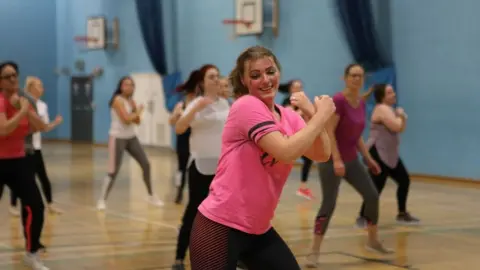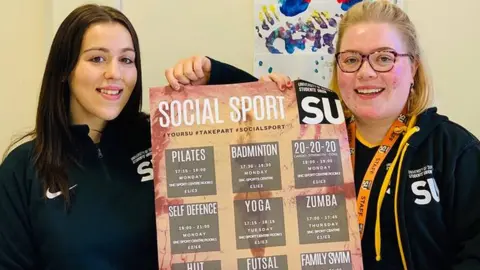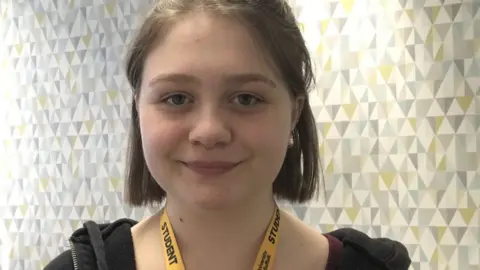University of Suffolk: 'Sport buddies' boost mental health
 Edward Harding
Edward HardingStudents have started a "sport buddy" scheme to tackle isolation and mental health issues at a university.
The University of Suffolk Students' Union scheme gives six free sessions to those with difficulties and arranges for a volunteer to accompany them.
Co-ordinator Tiffany Evripidou said they wanted to "intervene" before mental health became a problem.
The union said its research showed attending sessions alone was a big "engagement barrier".
"We've always believed in the power of activity and how it can have a positive impact on well-being," said Ms Evripidou.
Volunteers at the Ipswich-based university will be given mental health and first aid training.
 Edward Harding
Edward HardingMegan Rea, 18, a software engineering student, signed up as a buddy after leaving a different university because she felt "isolated".
"I know how it is to feel low and like you've not really got anyone," she said.
"Some people don't like going to something like that alone, but I will go with the person, be next to them and they will have someone."
Participants can choose from 10 different sports sessions a week, including Zumba, badminton and swimming.
After finishing the sessions, students will complete a mental health questionnaire and will be signposted to other support services.
 Megan Rea
Megan ReaThe union is hoping about 300 people will benefit from the Active Wellbeing scheme, which was given £7,000 funding by British Universities & Colleges Sport (BUCS).
A joint report by BUCS and Student Minds showed a third of students had experienced clinical levels of psychological distress.
Chief executive Vince Mayne said the project was a "great example" of ways to "harness the power of sport and physical activity to tackle mental health issues".
Ms Rae added "I think it's a real positive thing because you're helping someone else, and that's helping me.
"Sometimes it's just about listening and knowing when to say something."
